2023 public opinion research shows that Canadians prioritize government action on food insecurity
Public opinion and beliefs of food insecurity have the power to shape societal responses to it. Capturing and tracking public opinion allows us to understand what’s on the minds of the average Canadian and how this might connect to reducing food insecurity and poverty.
We partnered with David Herle and the Gandalf Group to run an annual nationally representative survey to gauge public awareness and opinion of food insecurity. From June 8-14 2023, we surveyed 1,997 people in Canada, with quotas and weights to reflect the gender, age, and regional distribution of adults in Canada (the margin of error for a probability-based sample would be +/- 2.2%, 19 times out of 20). Since we have run the same survey for several years, the following charts show some trends over time.
Overall, the 2023 results reflect that people across Canada are experiencing increasing pressures of cost of living and there is greater familiarity with food insecurity. Many believe that government is essential to addressing food insecurity and hunger and most agree that hunger and poverty are priorities for action. There are reasons for hope.
If you would like to use this data, please cite “The Maple Leaf Centre for Food Security and the Gandalf Group. (June 8-14, 2023). Public perspectives on food security. www.feedopportunity.com”.
Half of Canadians report they are worse off than two years ago.
When asked whether they felt they were financially better off or worse off now compared to two years ago, 49% said they were worse off (including 11% saying “much worse”) and 47% saying they were better off (with only 6% saying “much better”). Those with a long-term disability are more likely to say they are worse off, and this has increased slightly since 2022.
Worse Off vs. Two Years Ago
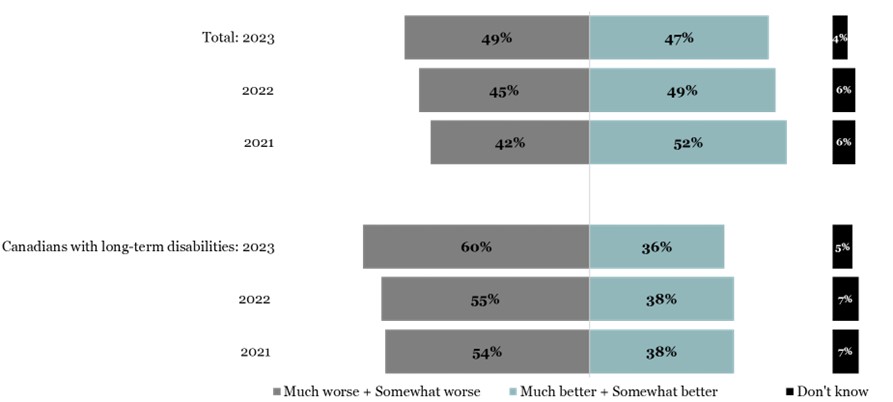
Would you say that you are financially better off or worse off now than two years ago? 2023 n=1997
A plurality of Canadians think Canada is headed in the wrong direction – except those in the top income bracket, seniors, and Quebeckers.
Many demographic groups slant towards thinking Canada is headed in the wrong direction, except for those in the top income bracket. Those who stated they were not able to access the food they needed in the last 12 months were most likely to say that Canada is headed in the wrong direction compared to other demographic groups.
People Saying Canada is Headed in the Wrong vs. Right Direction
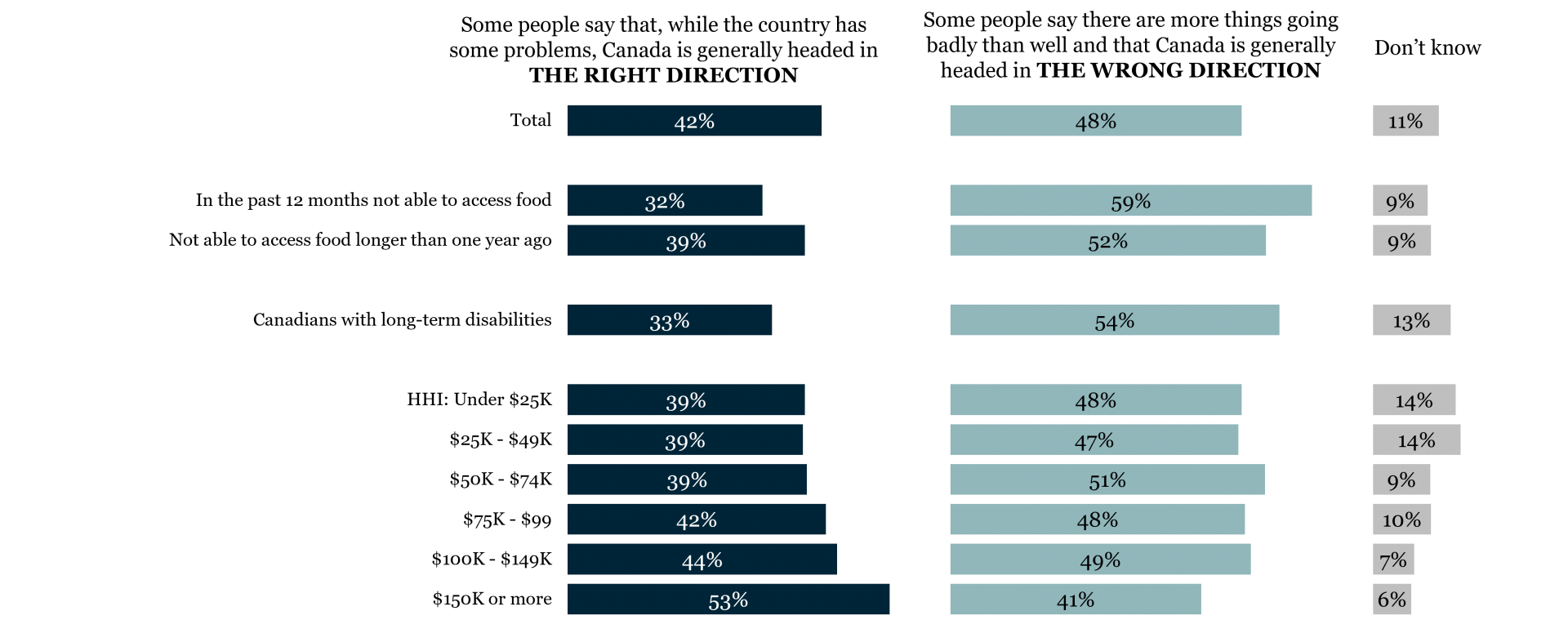
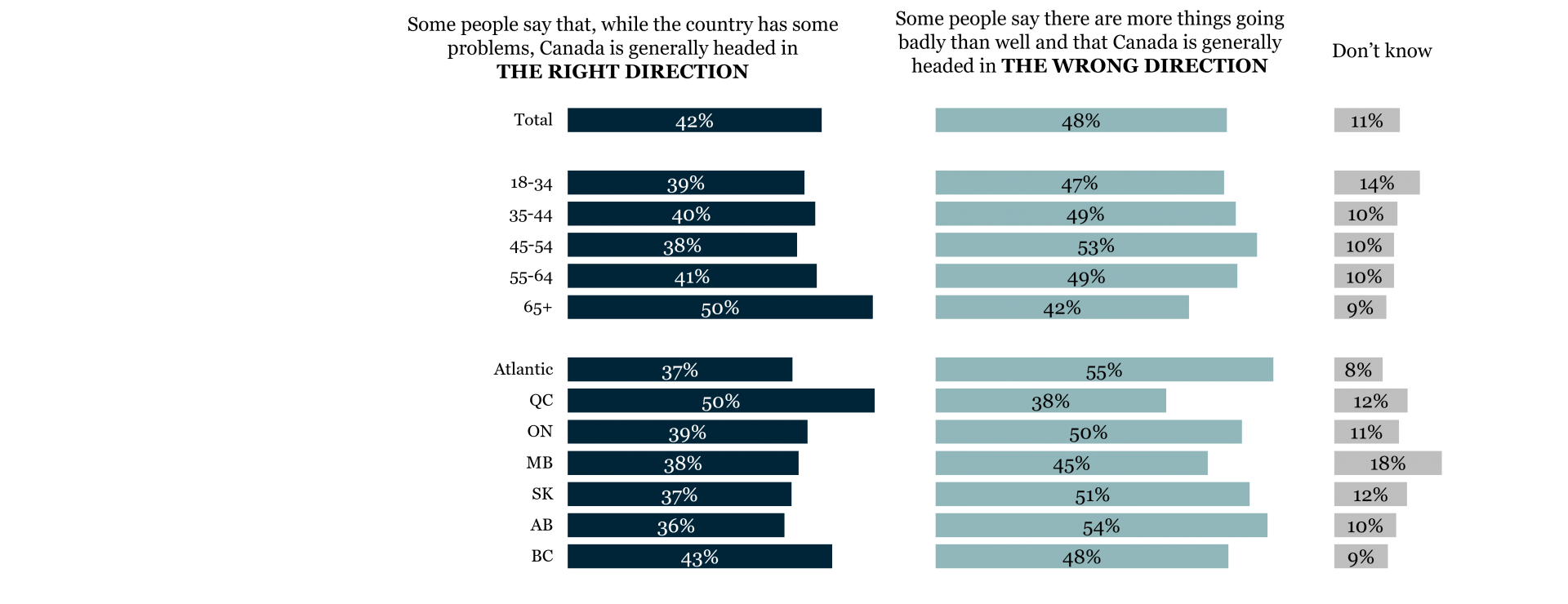
Most Canadians believe now is the time for government action on social issues like poverty, racism and inequality.
There has been no change since 2022 in the proportion of people who say it is time to address social issues like poverty, racism or inequality. In 2023, 65% of Canadians say now is the time to address these social issues (63% in 2022). Females are more likely than males to say this, and people over 75 years of age are more likely than other age groups to say this. There are no other differences between visible minorities and other demographic groups on this question.
Activism or Retrenchment
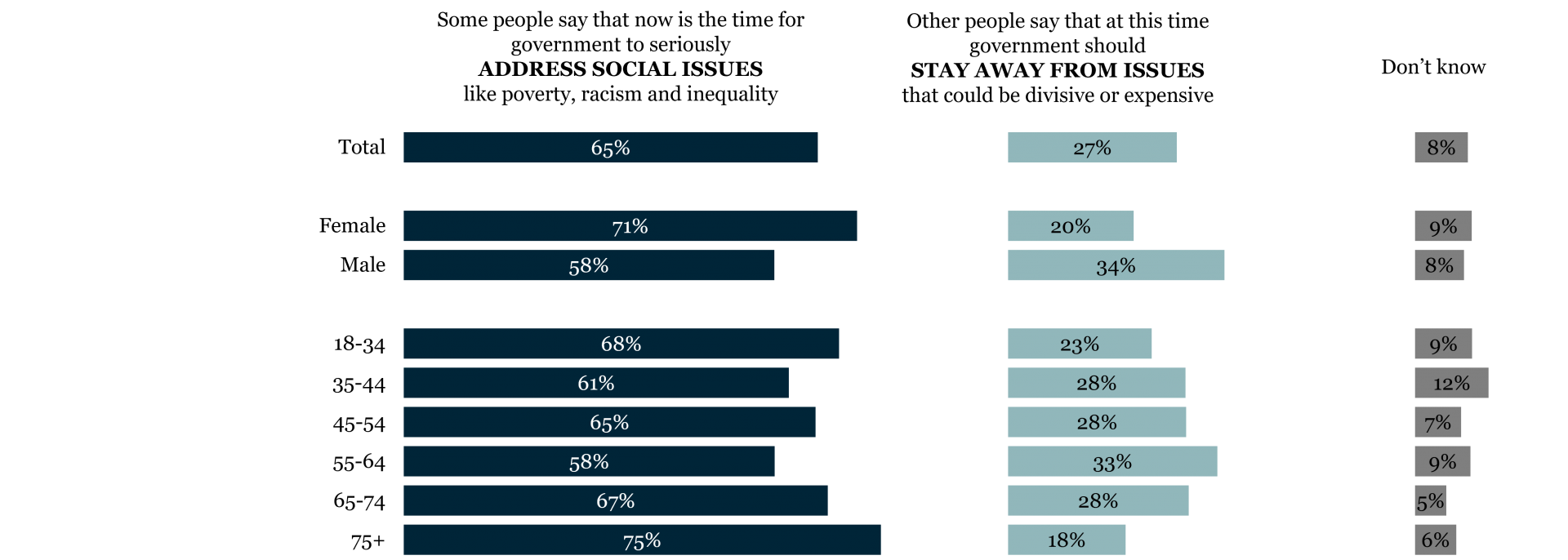
Which of these two statements is closer to your opinion? n=1997
Canadians are generally very concerned about the cost of living, followed by the number of people living in poverty, the cost of housing, and their access to health care.
The proportions of Canadians that are “very concerned” about each issue clearly identify a high level of concern about rising prices for essentials. The biggest changes in the last 2 years are rising concern about food prices, access to health care & interest on personal debt via mortgages and credit cards.
Concern about Food Inflation and Poverty, Over Time
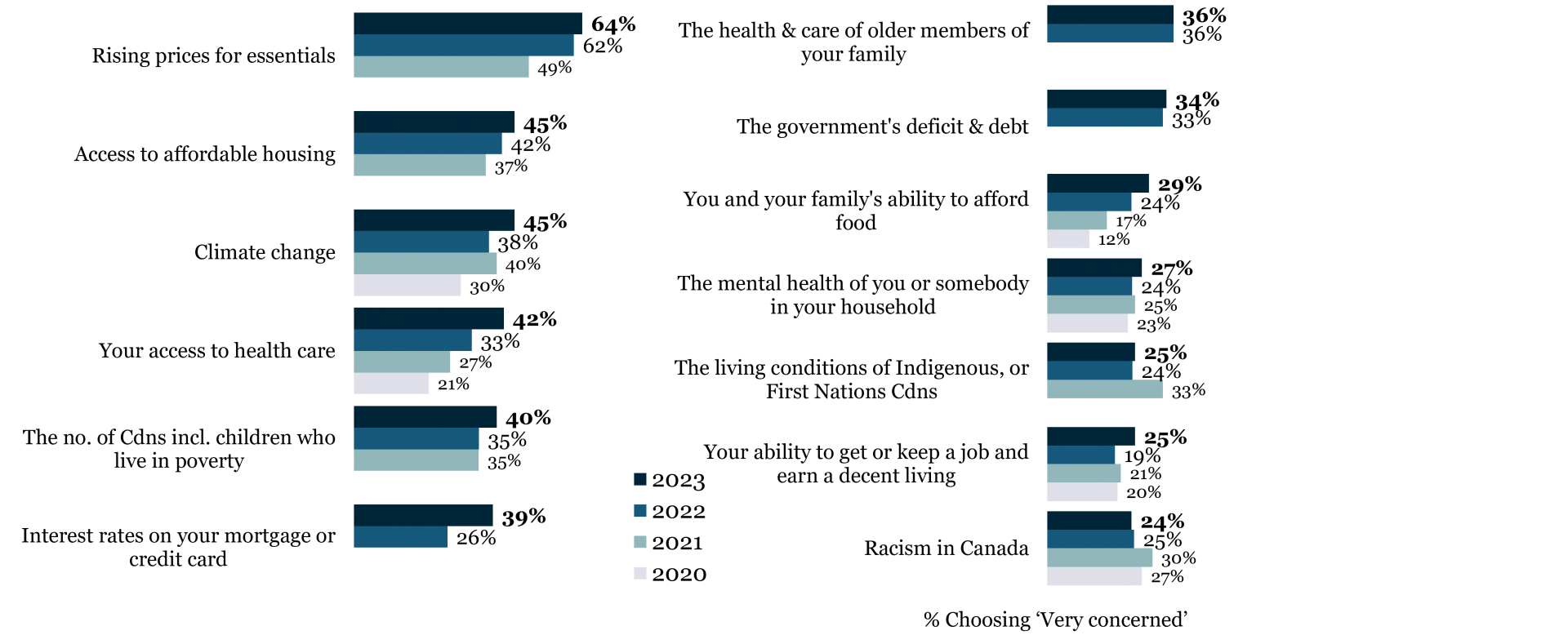
Policy ideas that have strong support of close to half of Canadians are those that deal with housing/rent, lower taxes, dental and drug costs for low-income Canadians.
Other popular policy efforts focus on fighting climate change, raising support for people with disabilities, and implementing a minimum income floor.
Degree of desirability of different policy ideas
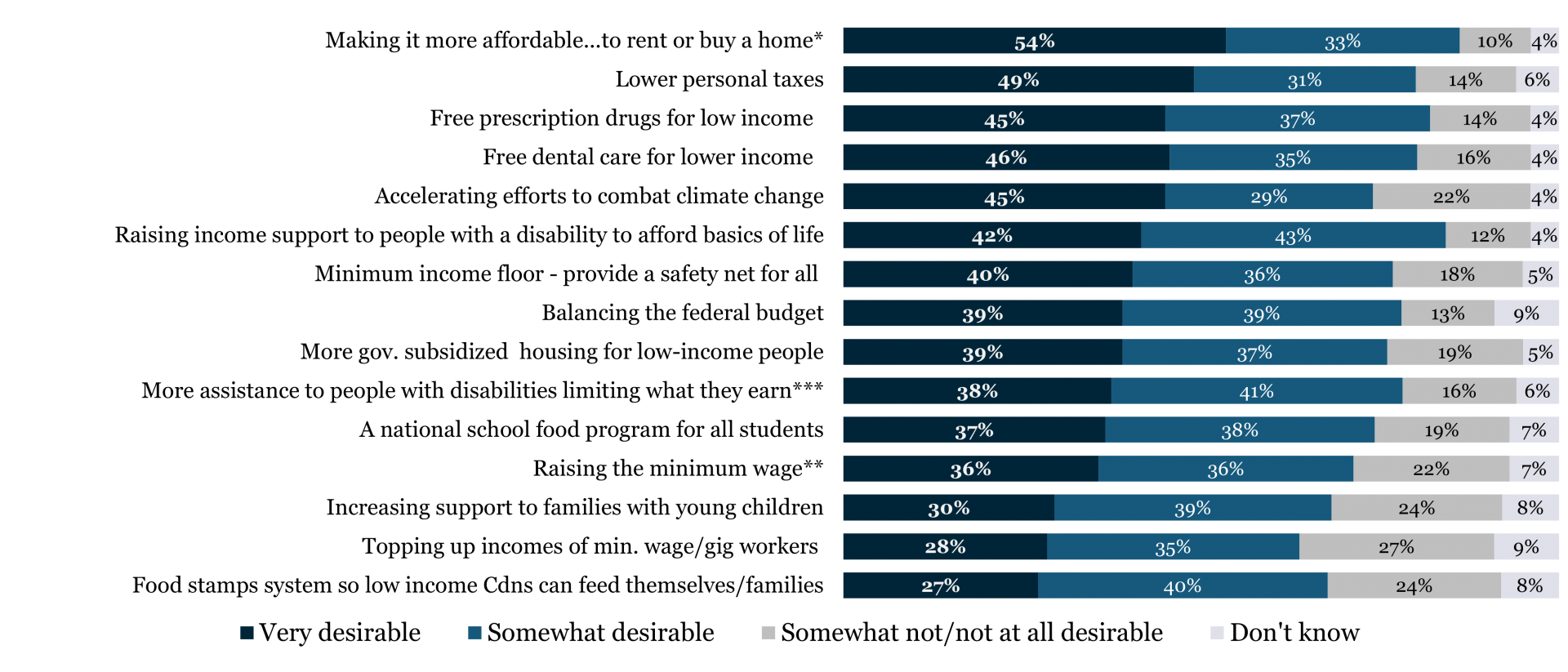
In 2022 it was *Making it more affordable for people to buy a home | **Raising the minimum wage to a level that makes it a wage one can live and raise a family on | ***Raising the amount social assistance pays to people with a disability | % choosing “Very desirable”
Experience with and familiarity with food insecurity has increased.
Two in three respondents in 2023 said they were familiar with the term “food insecurity” compared to approximately half of respondents in 2021, and three in 10 people say they now know someone in this position which is up from one in four in 2021. 18% say they have experienced insecurity within the past 12 months, which is 5% higher than in past years (note: this is based on self-reported experiences of food insecurity and does not intend to replace official prevalence rates published by Statistics Canada).

Most of those with any past experiences with food insecurity reported that they were unable to access a free or subsidized program.
Only 26% of those who had experienced food insecurity were able to access a free or subsidized food program.
Ability to Access Food Programs
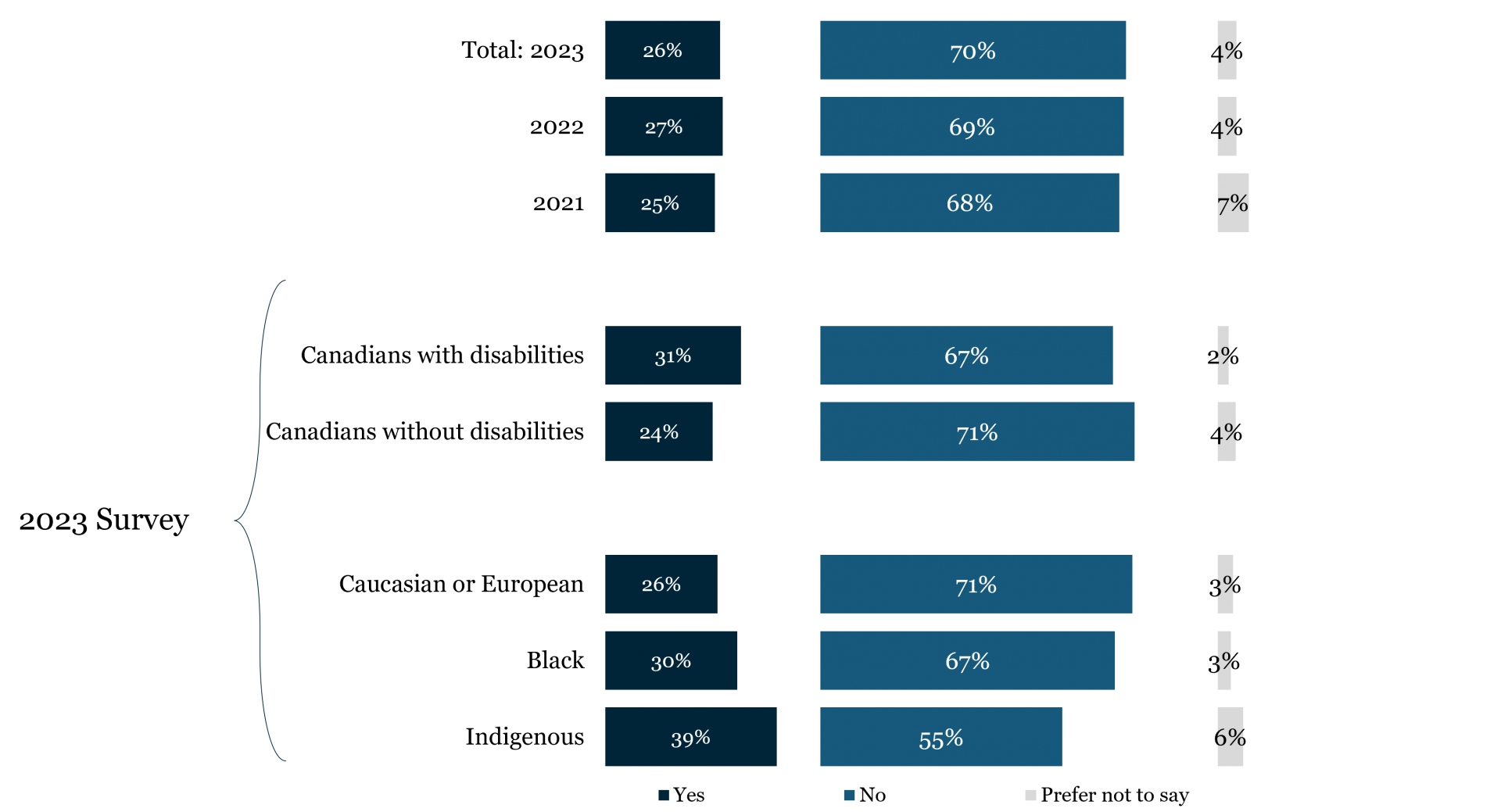
Were you able to access a free or subsidized food program? Those that had ever experienced food insecurity n=721
Arguments in favour of a food security agenda are stronger than arguments against.
Clear majorities agree with most statements in support of a food security agenda.
% Agreeing with Food Security Messages
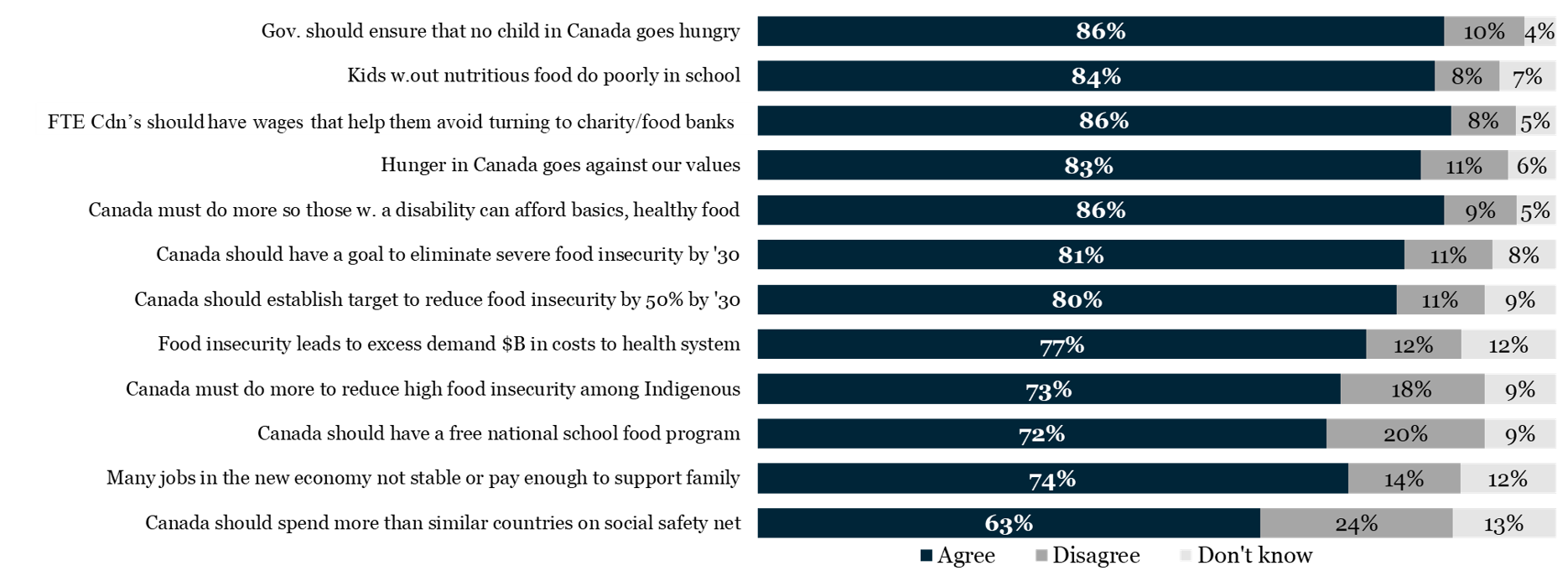
Most Canadians believe that the Federal and Provincial governments should do more to help people struggling with poverty and hunger in Canada.
Men under the age of 45 are slightly less likely than other demographic groups to say this. We asked the same question in 2022, and there has been no significant change since last year. The only regional change since 2022 is in the Atlantic: those in Atlantic Canada are more likely to agree that the Federal government should do more to help people struggling with poverty and hunger in 2023 (vs. 87% in ’22).
Federal Government Activism
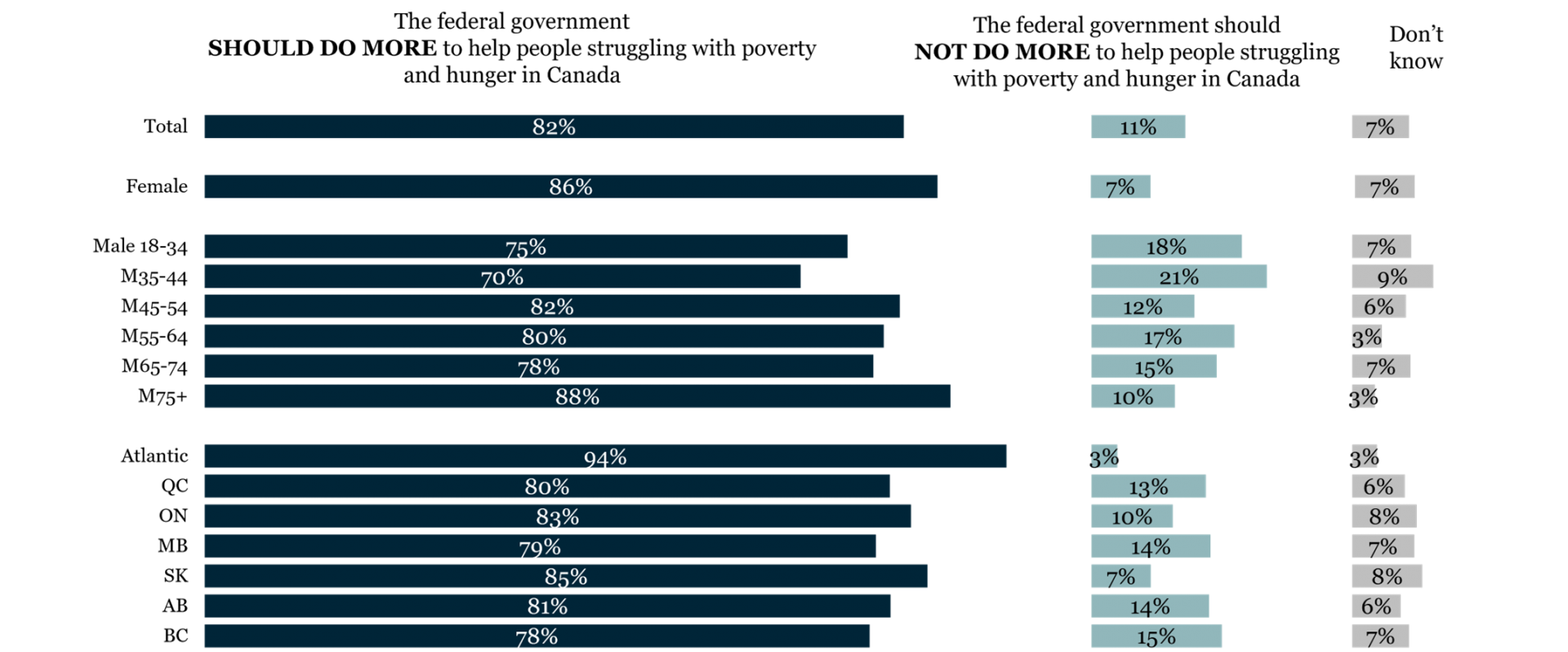
The percentage of people that think their provincial government should do more is only 2 points higher than those saying this about the Federal government. This belief is slightly but not significantly higher in ON, QC, MB, AB & SK (+2-7 points).
Provincial Government Activism
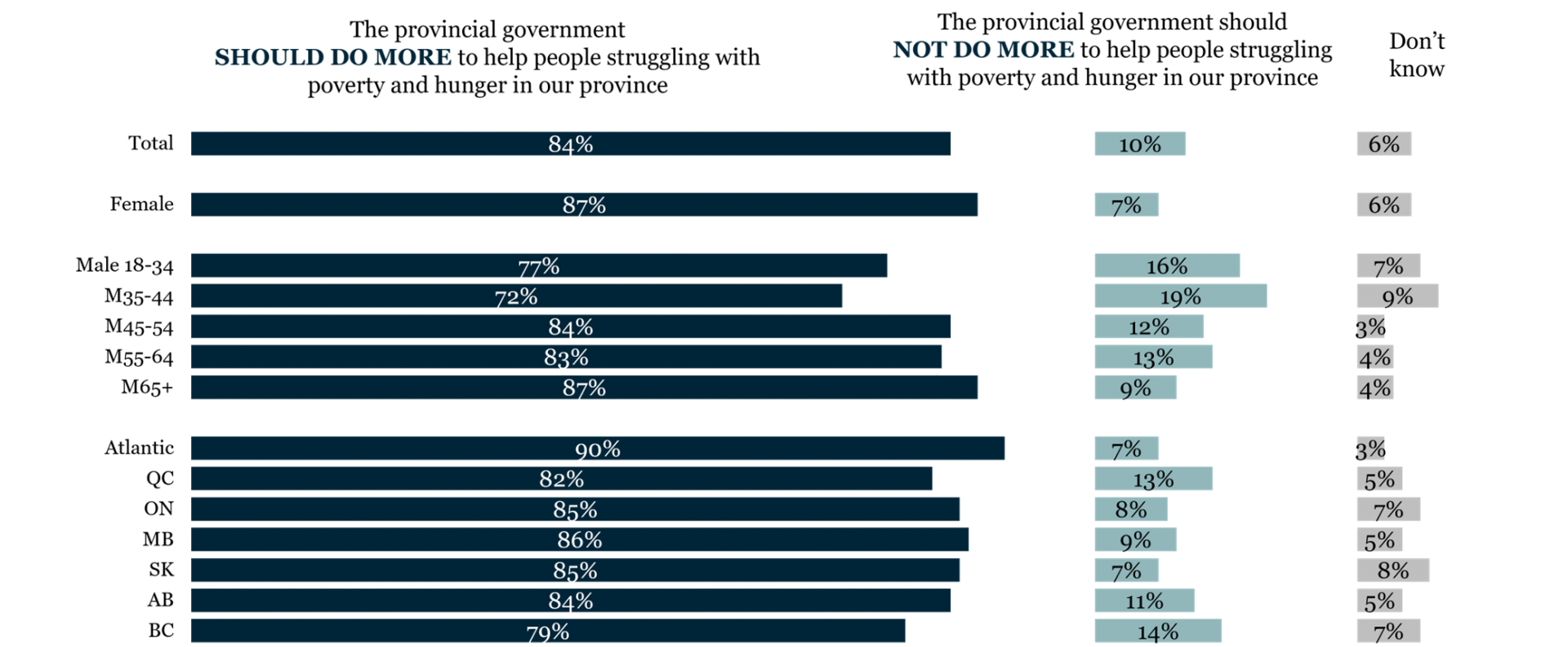
These results indicate that there is momentum in Canada for government action on food insecurity. We encourage those interested to reference and make use of this data to push for change.
October 17, 2023